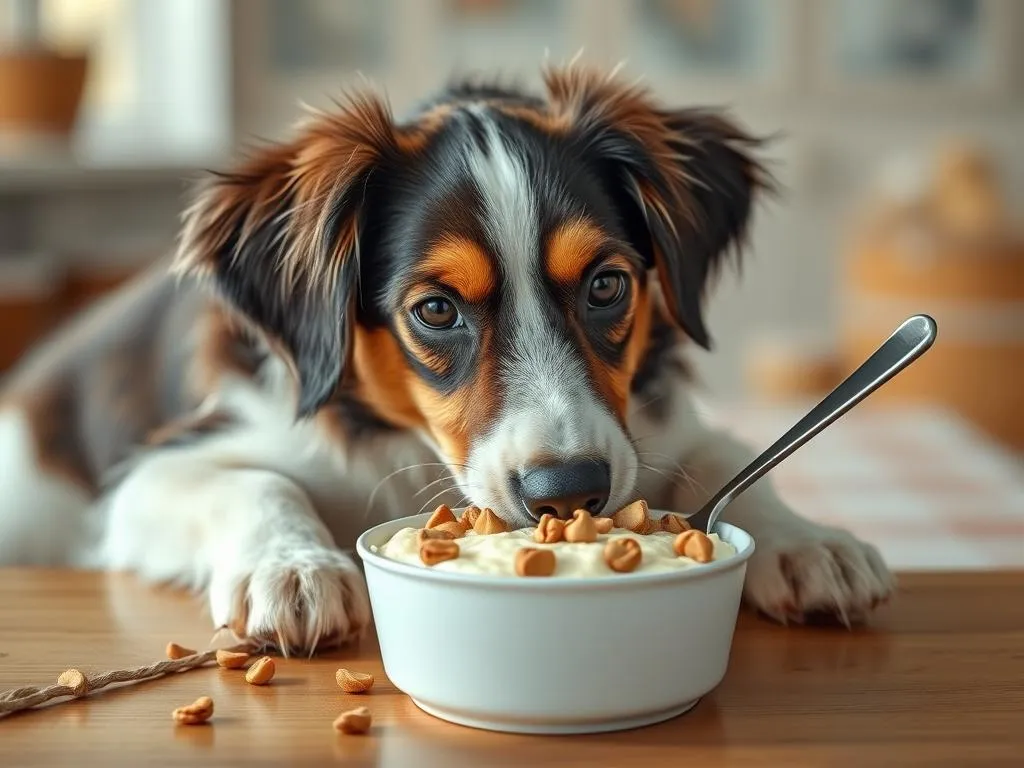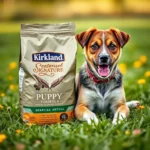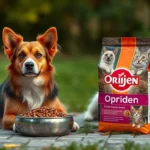
Introduction
Understanding the nutritional needs of our canine companions is essential for their health and well-being. Just like humans, dogs require a balanced diet to thrive, which includes proteins, fats, carbohydrates, vitamins, and minerals. As a responsible dog owner, it’s vital to know what foods are safe and beneficial for your furry friend.
One topic that often comes up is: Can dogs eat rice pudding? This article aims to provide you with comprehensive information regarding rice pudding and its effects on dogs, enabling you to make informed decisions about your dog’s diet.
Understanding Dog Nutrition
Basic Nutritional Needs of Dogs
Dogs are omnivores, meaning they can eat both plant and animal-based foods. Their nutritional needs can be categorized into three primary macronutrients:
- Proteins: Essential for muscle development, repair, and overall growth.
- Fats: A concentrated energy source that supports cell structure and hormone production.
- Carbohydrates: Provide energy and help in digestive health.
Additionally, dogs require various vitamins and minerals to support their immune system, bone health, and metabolic functions. A balanced diet ensures that these nutrients are adequately provided.
Common Dog Dietary Restrictions
While dogs can eat a variety of foods, some are toxic and should be avoided. Common toxic foods include:
- Chocolate
- Grapes and raisins
- Onions and garlic
- Avocado
Furthermore, some dogs may have allergies or sensitivities to specific ingredients, such as wheat or beef. If you notice any unusual behavior or symptoms after feeding your dog, consult your veterinarian for advice.
What is Rice Pudding?
Ingredients in Rice Pudding
Rice pudding is a comforting dessert made from rice, milk, sugar, and various flavorings like vanilla or cinnamon. Here’s a breakdown of the typical ingredients:
- Rice: The main ingredient, providing carbohydrates.
- Milk: A source of calcium and protein.
- Sugar: Adds sweetness.
- Flavorings: May include vanilla, cinnamon, or even fruits like raisins or nuts.
It’s essential to note that variations of rice pudding can include potentially harmful additives, such as raisins and nuts, which are not safe for dogs.
Nutritional Value of Rice Pudding
While rice pudding can be a nutritious treat for humans, its nutritional value for dogs is different. Here’s a basic breakdown of what rice pudding typically contains:
- Calories: High due to sugar and milk
- Carbohydrates: Primarily from rice and sugar
- Fats: Comes from milk (especially whole milk)
- Proteins: Minimal, depending on the type of milk used
For humans, rice pudding can provide a good source of energy and comfort, but the health benefits it offers for dogs are limited and overshadowed by potential risks.
Can Dogs Eat Rice Pudding?
Safety Considerations
Let’s analyze each ingredient in rice pudding to determine its safety for dogs:
- Rice: Generally safe for dogs and often used in homemade dog food. It can help with digestive issues.
- Milk: Many dogs are lactose intolerant, which means they may have difficulty digesting milk. This could lead to digestive upset.
- Sugar: High sugar content is not healthy for dogs and can lead to obesity and dental issues.
- Flavorings: Some flavorings, like raisins, can be toxic to dogs. Always check ingredient labels and avoid anything harmful.
Potential Health Risks
Feeding rice pudding to dogs can pose several health risks:
- Digestive Issues: Dogs that consume rice pudding may experience diarrhea, vomiting, or an upset stomach, especially if they are lactose intolerant.
- Long-term Health Concerns: Regularly feeding sugary foods can lead to obesity, diabetes, and other long-term health problems.
- Allergic Reactions: Some dogs may have allergies to specific ingredients, leading to reactions that could jeopardize their health.
It is crucial to remember that while a small amount of rice pudding may not cause immediate harm, it is not a recommended food for dogs.
Alternatives to Rice Pudding for Dogs
Dog-Friendly Rice Dishes
If you want to include rice in your dog’s diet, consider preparing simple, dog-friendly rice dishes. Here’s a basic recipe:
Plain Rice with Vegetables
Ingredients:
– 1 cup of cooked plain rice
– 1/2 cup of cooked carrots
– 1/2 cup of cooked peas
Instructions:
1. Cook rice according to package instructions.
2. Steam or boil the carrots and peas until tender.
3. Mix all ingredients together and serve in moderation.
This dish provides your dog with essential nutrients without the risks associated with rice pudding.
Healthy Treats for Dogs
Instead of rice pudding, opt for healthier, dog-friendly treats. Here are some natural alternatives:
- Carrot sticks: Crunchy and low-calorie.
- Apple slices (without seeds): A sweet treat packed with vitamins.
- Homemade dog biscuits: Ingredients like oats, peanut butter, and pumpkin are safe and tasty.
Homemade Peanut Butter Treats
Ingredients:
– 1 cup of whole wheat flour
– 1/2 cup of peanut butter (ensure it doesn’t contain xylitol)
– 1/4 cup of water
Instructions:
1. Preheat the oven to 350°F (175°C).
2. Mix all ingredients until a dough forms.
3. Roll out the dough and cut into shapes.
4. Bake for 15-20 minutes or until golden brown.
These treats are not only safe but also nutritious for your dog.
How to Introduce New Foods to Your Dog
Gradual Introduction
Whenever introducing new foods, it’s crucial to start with small amounts. This allows your dog’s digestive system to adjust and helps you monitor for any adverse reactions. If you notice signs of discomfort, discontinue the new food and consult your veterinarian.
Consulting with a Veterinarian
Before making significant changes to your dog’s diet, it’s always a good idea to consult with a veterinarian. They can provide personalized dietary recommendations based on your dog’s age, weight, health status, and any specific dietary needs.
Conclusion
In summary, while the question can dogs eat rice pudding may seem harmless, the potential risks and limited nutritional benefits make it unsuitable for canine consumption. Instead, focus on providing your dog with a balanced diet rich in safe, nutritious foods tailored to their needs.
As a responsible pet owner, being aware of your dog’s nutritional requirements and the effects of different foods will ensure a healthy and happy life for your furry friend.
FAQs
Can puppies eat rice pudding?
Puppies have sensitive digestive systems, and it’s best to avoid feeding them rice pudding. Instead, focus on age-appropriate foods specifically formulated for puppies.
What should I do if my dog eats rice pudding?
If your dog consumes rice pudding, monitor them for any signs of digestive upset. If they show symptoms like vomiting or diarrhea, consult your veterinarian for advice.
Are there any desserts safe for dogs?
Yes, there are many dog-safe desserts, such as frozen banana treats or pumpkin puree mixed with yogurt. Always opt for treats specifically made for dogs.
Is rice good for dogs in general?
Plain, cooked rice is safe for dogs and can be beneficial, especially for dogs with digestive issues. It’s a good source of carbohydrates but should be served in moderation and as part of a balanced diet.
References
This blog post draws on various studies and guidelines related to dog nutrition. For more detailed insights and research, consulting veterinary resources and studies on canine dietary needs is recommended.









